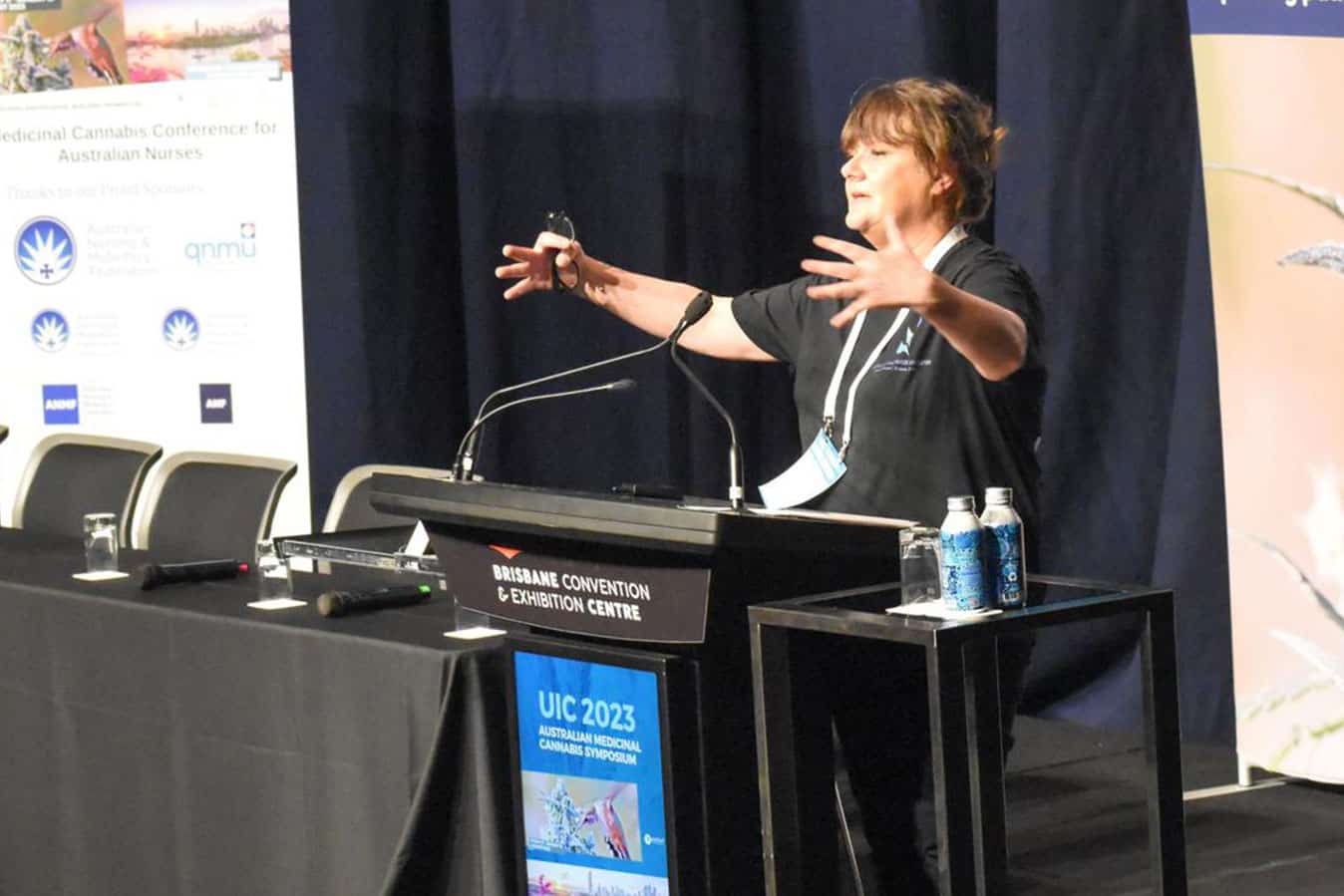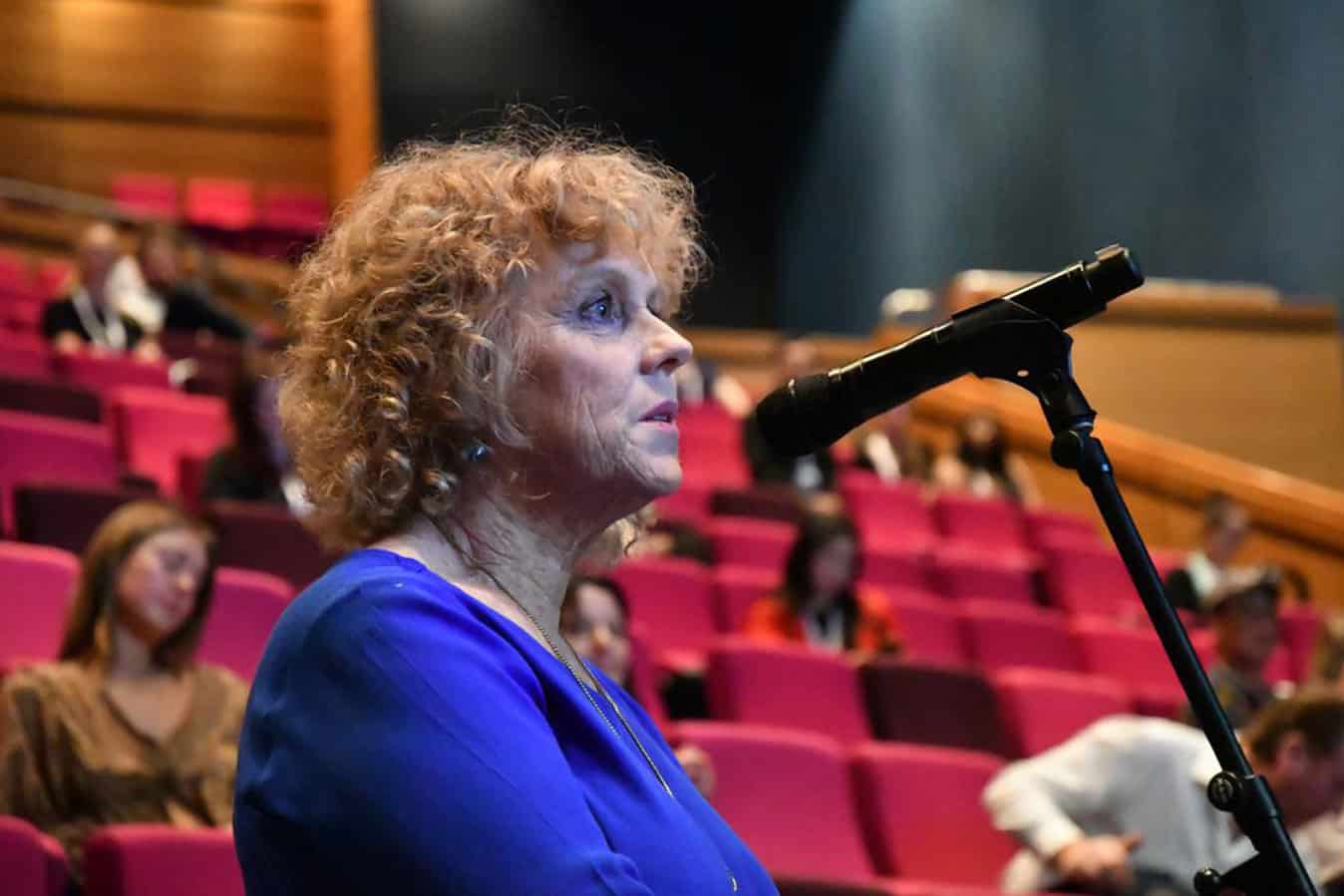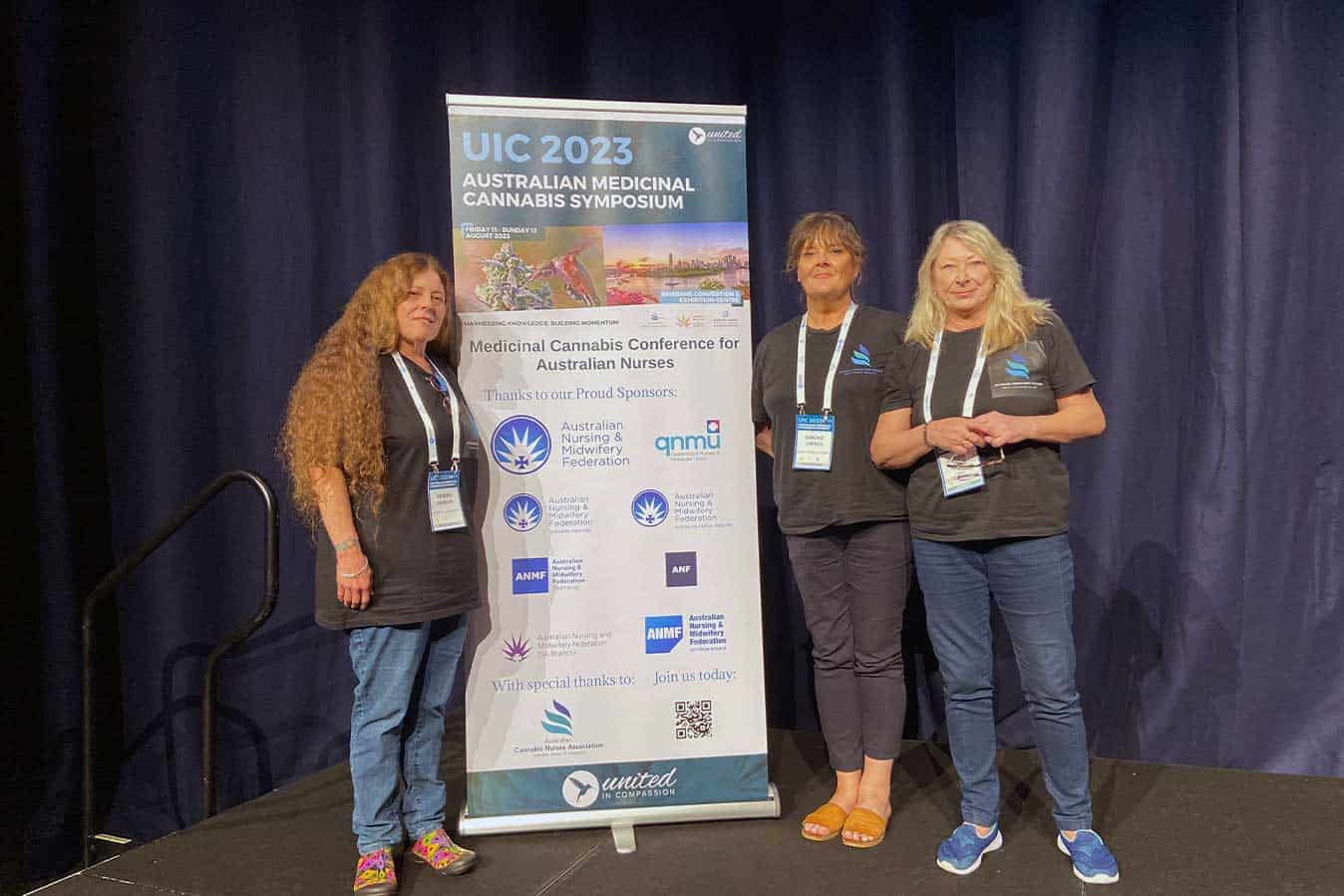Education about the body’s endocannabinoid system (ECS), which regulates and controls many critical functions such as learning and memory, mood, and pain, must be embedded into undergraduate nursing curriculum across Australia, leading advocates have argued.
Speaking at the 2023 United In Compassion Australian Medicinal Cannabis Symposium’s Nurses’ Conference in Brisbane last Friday, Victorian Nurse Practitioner Simone O’Brien, a founding member of the Australian Cannabis Nurses Association (ACNA), told delegates the push into the education sector was fundamental to increasing knowledge and understanding among the next generation of nurses. She said propelling the speciality of medicinal cannabis nursing further was crucial as patients sought greater access to the drug.
“I would love to see it in all nursing programs because it’s so fundamental to health,” Ms O’Brien said.
“I [believe] nursing has a fundamental shift ahead of it in the next five to 10 years and we will have to follow this shift. Patients are driving the changes and are driving new ages of medicine and they’re doing it because we weren’t quick enough, and because our medicine wasn’t quick enough and our medicine doesn’t work that well [for everybody].”
The endocannabinoid system is an internal biological system made up of internally produced cannabinoids (endocannabinoids) and receptors (cannabinoid receptors) that help regulate and maintain homeostasis within the body.

Cannabinoids are the name given to all chemical substances that help communicate and join cannabinoid receptors and the brain. The two most-known phytocannabinoids to keep the ECS working optimally and in homeostasis are delta-9-tetrahydrocannabinol (THC) and Cannabidiol (CBD).
“I feel like nursing’s going full circle in some ways and we’re returning to where we actually came from,” Ms O’Brien told delegates.
“Nursing has been largely medicalised. Endocannabinoid nursing will allow nurses to get back to being nurses, looking at the dynamics of the patient, that stabilisation, the role that plants play, the role that diet plays.”
An NP working across rural Victoria, Ms O’Brien’s own journey with using medicinal cannabis began in 2019 after she severely damaged her leg and searched for relief.
“I live with chronic pain every day and manage that with cannabinoids, which work amazing for me,” she revealed.
“I tell my patients, ‘you’re pain is real, you have pain’. I explain about the brain and body connection, and where the ECS sits with all that relationship.
“For nurses, that’s our message. We’ve got this system in our body that is stabilising everything. If that’s out of whack, then you’re going to have other things out of whack.”
As the use of medicinal cannabis, and hopefully access, grows across Australia, Ms O’Brien said the nursing profession needed to embrace the change, starting with embedding ECS study into undergraduate nursing curriculum.
Notably, academic representatives from several universities across Australia attended the Nurses’ Conference, illustrating their emerging support to explore how ECS education could be embedded.
Forming earlier this year in response to growing demand from nurses looking for more information about the endocannabinoid system and medicinal cannabis, ACNA’s mission was to normalise the drug and create a safe space where nurses and other clinicians could access resources, and connect with like-minded people.
Ms O’Brien said ACNA was committed to working with all universities to get ECS into undergraduate nursing curriculums and has already developed a range of courses, written by pain specialists, addiction consultants, and also nurses, that are ready to go.
“We’ve written it for you, we’ve got it, you don’t have to do a thing,” she declared.
“We can give it to you. We’re happy to even start the ball rolling and help you teach it. The problem is going to be getting it in there. We don’t want you to reinvent the wheel; we have oodles of work, we have a lot of research.”

Speaking to the ANMJ, retired nurse Lucy Haslam, co-founder of United in Compassion and ACNA, echoed the need for more education with the endocannabinoid system poised to play a big part in the future of nursing care.
“Anything to do with medicinal cannabis, we’re in an educational vacuum,” she explained.
“So it all starts with education and the best person to advocate for patients is the nurse, so I think it’s critical that nurses know about the endocannabinoid system. That then places them in a great position to be able to understand how phytocannabinoids work. And that’s really where it’s all going to start. It’s absolutely essential and it should have been done 30 years ago.”
While some courses currently exist, Ms Haslam says many are run by companies looking to make a profit, or push a particular medicine. Instead, ACNA believes education should remain independent, and simply focused on improving knowledge about the endocannabinoid system and how medicinal cannabis has a role in in helping people that may have an imbalance within their system.
The ball is now in the court of universities, she added.
“It’s down to them, and I think the fact that we had several universities here represented for the first time [says a lot]. You first need them to understand why they should be doing this and so I think we’ve begun that process.
“Based on conversations that I’ve had and feedback that we’ve gained, there was an element of success in that and they’re realising that there is potentially this void that needs to be filled.”
It’s now been nine years since Ms Haslam organised the inaugural UIC Medicinal Cannabis Symposium in Tamworth, a year prior to legislation in Australia.
She says interest among nurses has continued to grow over the years.
“They’re not politically motivated, they’re not financially motivated, they just want to give good care,” she said.
“I think nurses, as the key caregivers, have a lot of power, and I’m really excited to see how this is playing out.
“There’s real impetus now and we just need to follow through and make sure that these polices make it through into the hospital system, into the respite systems, and childcare and aged care. I think nurse are hungry for it.”
Opening the Nurses’ Conference earlier in the morning, QNMU Secretary Kate Veach said it was terrific to see the profile of medicinal cannabis and the role and support of nurses, continue to grow.
“The pathway to where we are today regarding medicinal cannabis has been long and we all know there is still some way to go,” Ms Veach said.
“However, if the determination of past and present efforts are anything to go by, we will continue to make strong progress that supports patients, families, carers, nurses midwives, and other clinicians.
“Nurses and midwives provide safe, appropriate and responsive care, obviously within the scope of our practice and this includes caring for patients who are prescribed medicinal cannabis for the treatment of conditions not limited to but such as multiple sclerosis, epilepsy, chronic pain, chemotherapy induced nausea and vomiting and situations requiring palliative care.
“Public education and awareness campaigns and training for health practitioners is key to the future use of medicinal cannabis products here in Australia. The ANMF supports training for nurses and midwives that increases their awareness and informs them about all aspects of medicinal cannabis, including the current regulatory framework and legislation, modes of action, therapeutic and non- therapeutic effects, adverse effects and drug interactions, and the role and responsibilities for nurses and midwives.
“We believe education will help in reducing the stigma associated with medicinal cannabis by producing information that these products are not illegal and for some patients these products are very suitable as part of a treatment plan prescribed by a health practitioner.”








